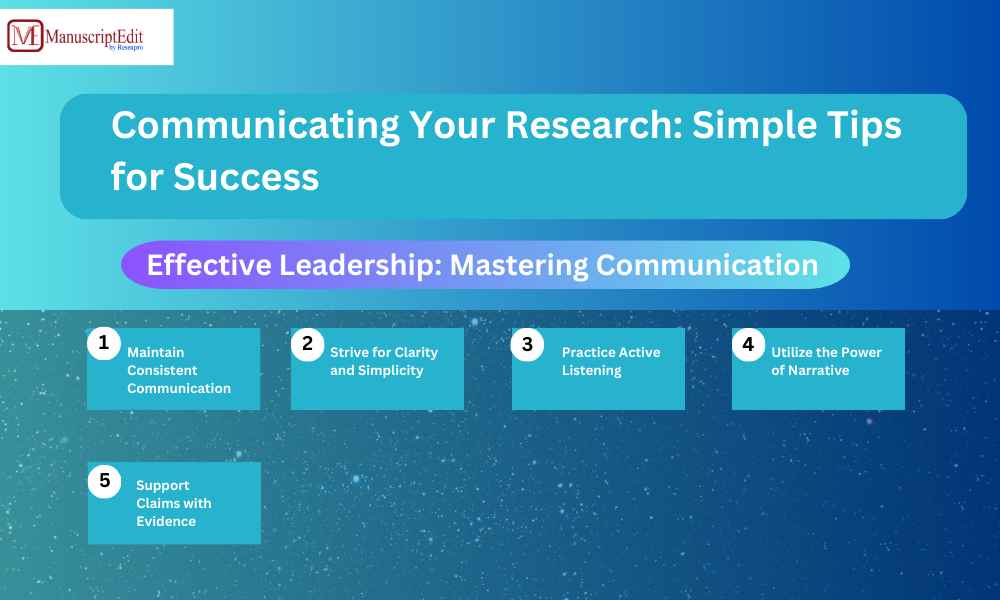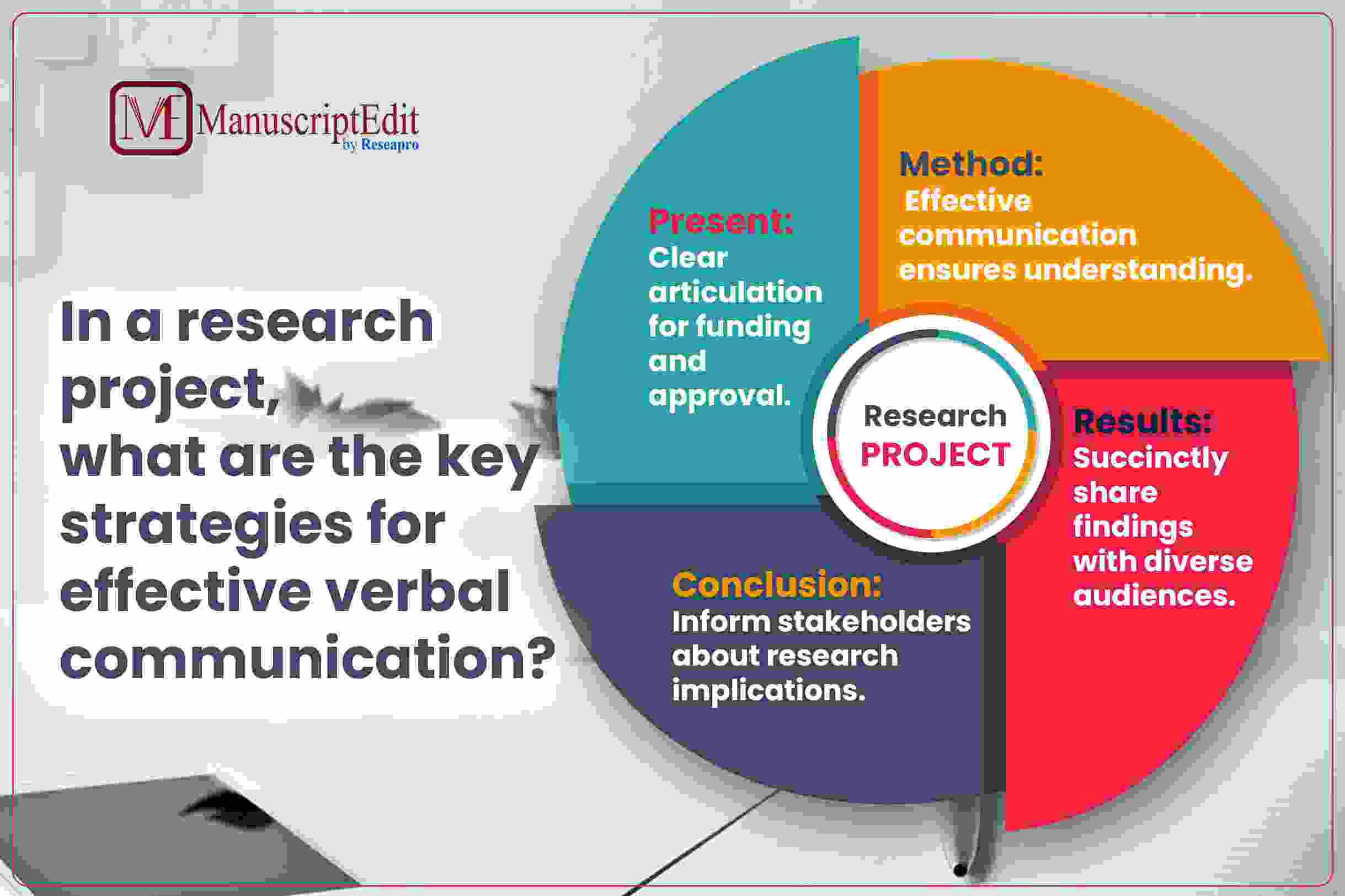
Disseminating research findings is crucial for amplifying impact, fostering collaboration, and facilitating knowledge exchange. By employing effective communication strategies, researchers can convey their discoveries to diverse audiences, including policymakers, the public, and other stakeholders.

This blog offers researchers practical guidance and actionable tips to enhance their communication skills, increase the visibility of their work, and engage their target audience.
How to Communicate Research Findings?
When sharing research results, consider your audience and communicate concisely and clearly. Use visual aids like graphs, tables, or infographics to enhance understanding. Highlight the study’s significance and relevance by summarizing the essential findings and their implications. By doing so, you’ll engage your audience and effectively convey the importance of your research.
When addressing non-academic audiences, employ narrative strategies. Modify your communication approach for different media, including reports, presentations, and social media posts.
What are the Three Tips for Effective Communication?
Three essential tips are necessary for effective communication.
- Understand your audience: Tailor your message to their interests, experience, and level of understanding.
- Use visual aids to enhance comprehension: Incorporate graphs, charts, or images to help illustrate your points and make them more accessible.
- Speak plainly: Avoid jargon or technical terms that may confuse instead of clarify.
How do you Speak in a Research Project?
The different phases of the research communication process are as follows:
- Presentation
Presenting your research topic to funding agencies or supervisors is what happens throughout the proposal stage. Communicating clearly and succinctly is essential to getting support and approval for your idea.
- Methodology
You will converse with participants, partners, and other stakeholders during the methodological phase. Effective communication ensures everyone understands the research design and their roles and responsibilities.
- Results
Clearly and succinctly communicating your findings to various audiences, such as academics, business experts, and the general public, would be beneficial.
- Conclusion
At this point, you will enlighten interested parties—lawmakers, scholars, and members of the public—about the research findings and consequences

Why is it Essential to Communicate your Research?
Good communication is essential at every level of a study endeavor. Clarity is critical to stating the research question clearly, its aims, and its methods at the proposal phase. Accuracy is essential to communicating the selected course of action and its reasoning when developing a technique.
Researchers promote comprehension by emphasizing precise and customized communication at every phase, propelling significant advancements in their undertakings.
Conclusion
In summary, the relevance of effectively communicating research findings is immense. It ensures that insights are generated, comprehended, and used by bridging the gap between discovery and effect.
Researchers can improve their communication skills and increase the impact and reach of their work by putting the straightforward but practical advice they’ve discussed into practice.
References
- https://authorservices.taylorandfrancis.com/blog/research-impact/7-tips-for-communicating-research-to-the-public/
- https://gsrc.ucr.edu/blog/2022/11/30/5-tips-communicating-your-research-effectively
- https://www.linkedin.com/advice/0/how-can-you-communicate-research-findings-effectively
